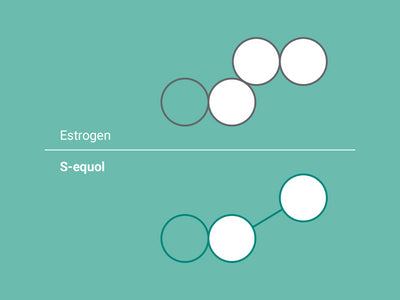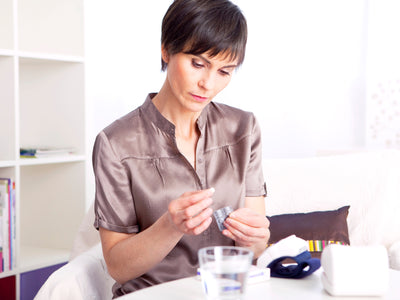
Hot Flashes: Understanding the Latest Science Behind Menopause and Sweating
Understanding hot flashes requires a look at the role hormones play in our bodies. As the chemical messengers between the brain and body, hormones regulate countless functions, including our heart rate, metabolism, reproduction, appetite, mood, sexual function, growth, development, and on and on.1
So when perimenopause and menopause come along and begin affecting the body’s estrogen production, it’s no wonder we feel it with intense symptoms. Although doctors aren’t completely certain of the exact cause of the chain of events in the body that makes us feel like a volcano, most believe that hot flashes and night sweats are a sign of fluctuating estrogen levels.
While you’re experiencing a hot flash, it’s easy to think that it’ll last forever. But know that for millions of women, hot flashes and night sweats come and go throughout menopause. And by the time most women reach their post-menopause years, they report experiencing hot flashes far less frequently.
Think You’re Hot? Your Brain's Dirty Trick
Many doctors believe that the brain’s hypothalamus, which is responsible for regulating the body’s temperature, reads the decrease in estrogen as a message that the body is hot.
Whether or not you truly are hot to begin with is up for debate, but, either way, your brain thinks you are, and the body does its thing to begin cooling you down. The hypothalamus sends a signal to dilate your blood vessels and increase your heart rate, pumping blood faster. This, in turn, gives you that lovely red complexion and hot, flushed feeling and, ultimately, makes you sweat, which is your body’s way of naturally cooling off.
Hot Flashes Vs. Night Sweats
Hot flashes? Hot flushes? Night sweats? What’s the difference? Well hot flashes and hot flushes are the same thing. Tomayto, tomahto. Hot flashes or flushes happen any time of day and are often accompanied with a hot feeling on the skin, flushed red face, a racing heart, and sweating.
Although night sweats can be a result of other health factors, menopause-related night sweats are essentially caused by the same process as hot flashes. And these nighttime episodes can be so intense that they wake you up.
Possibly due to the hot flash’s association with estrogen level fluctuations, it’s not uncommon for women to experience night sweats before their period during perimenopause.2 And if you’re wondering how to stop night sweats naturally, you’re not alone. Many women choose to explore natural remedies for hot flashes.
Natural Supplements and Chill
If you’re feeling like you’re the only one experiencing hot flashes, don’t. More than 75% of women in perimenopause and menopause have reported experiencing them.3 The good news is that there are effective natural remedies for hot flashes and night sweats. S-equol, the naturally derived, active ingredient in EQUELLE, helps restore your balance by acting like estrogen in the body to keep your brain from getting mixed messages.
Learn more about how Equelle works to relieve hot flashes.
1The Endocrine Society. Hormone Health Network. Hormones. Version current 16 November 2018. Internet: https://www.hormone.org/hormones-and-health/hormones (accessed on 16 November 2018).
2Prior, Jerilynn C. BA, MD, FRCPC. The Centre for Menstrual Cycle and Ovulation Research. Perimenopause: The Ovary’s Frustrating Grand Finale. Version current 29 November 2013. Internet: http://www.cemcor.ubc.ca/resources/perimenopause-ovary%E2%80%99s-frustrating-grand-finale (accessed on 16 November 2018).
3The North American Menopause Society (NAMS). Hot Flashes. Version current 16 November 2018. Internet: http://www.menopause.org/for-women/sexual-health-menopause-online/causes-of-sexual-problems/hot-flashes (accessed on 26 November 2018).


